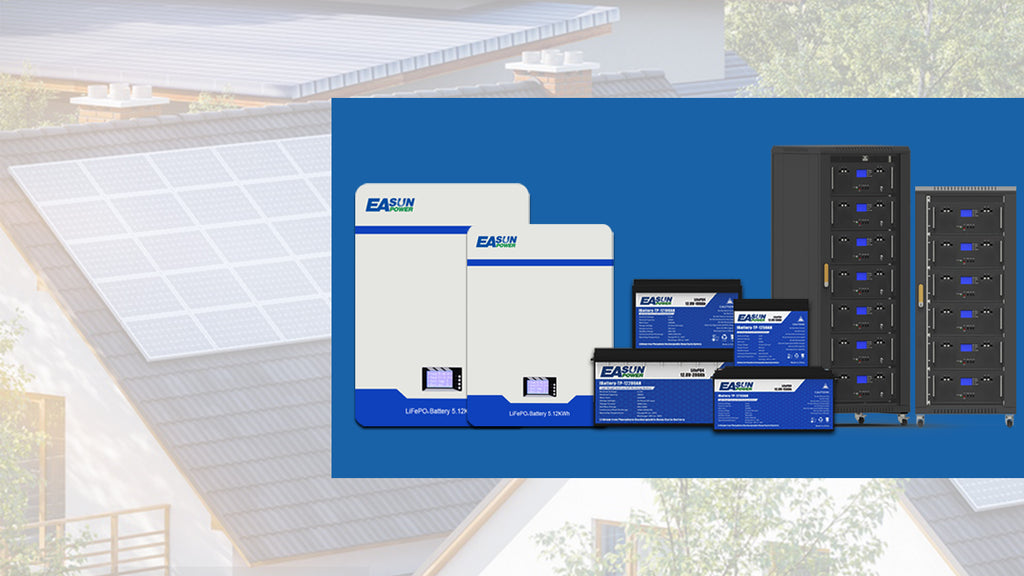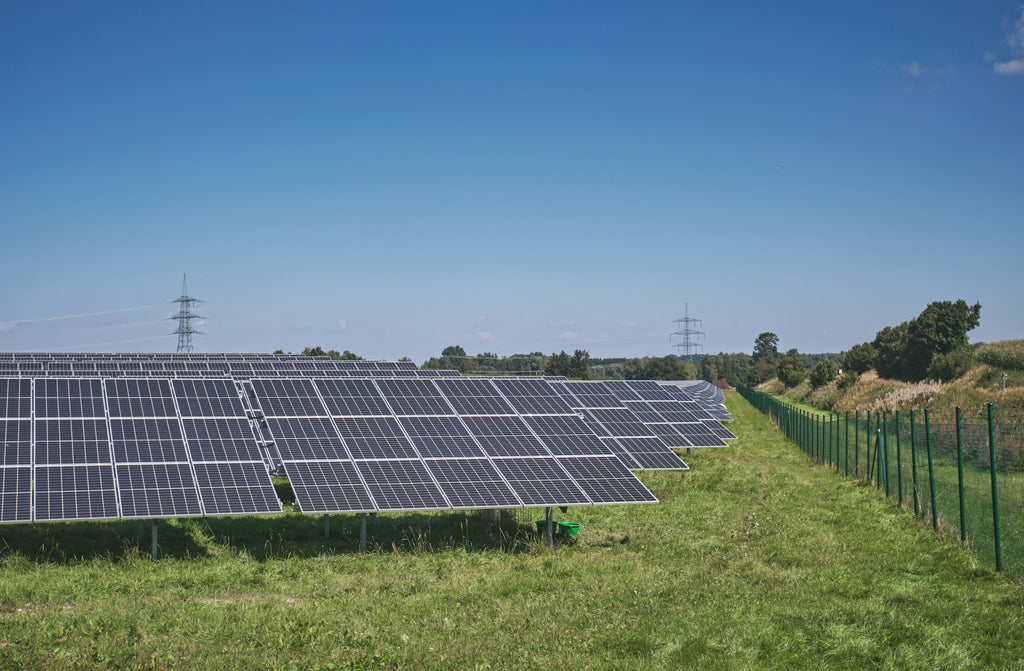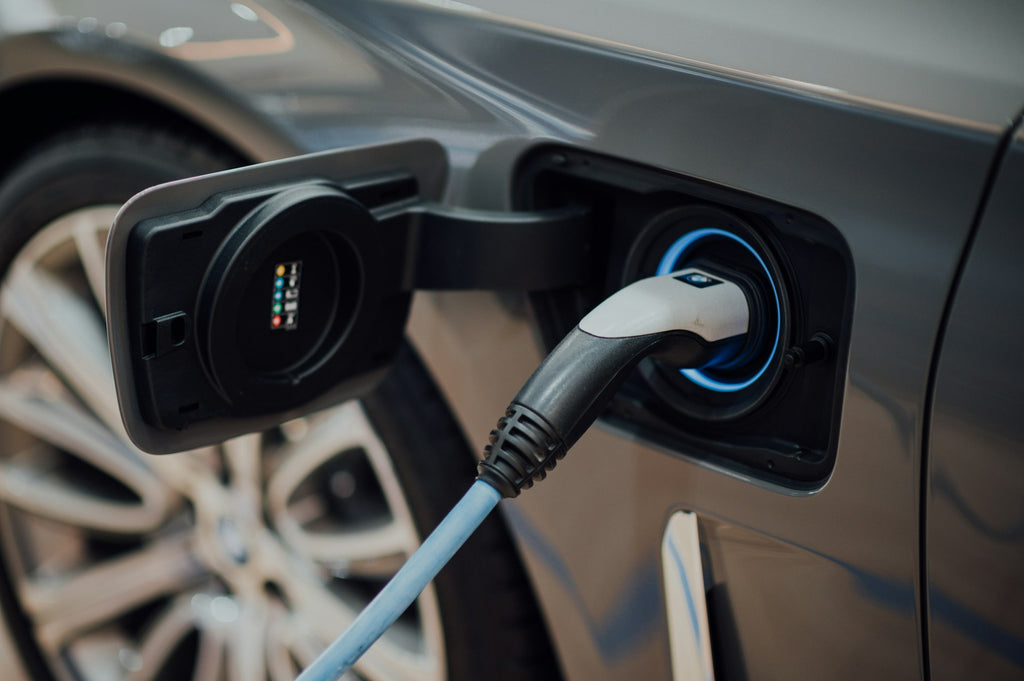
Key Uses & Advantages of Lithium Iron Phosphate Batteries(LiFePO4)
What Is LiFePO4 Battery
A LiFePO4 battery, also known as a Lithium Iron Phosphate battery, is a type of lithium-ion battery that uses lithium iron phosphate as the cathode material and a graphitic carbon electrode with a metallic backing as the anode. This battery chemistry offers a more stable structure and safety profile compared to other lithium-ion compositions due to the strong P-O bond in the phosphate, making it less prone to overheating and thermal runaway. In energy storage, Lithium Iron Phosphate (LiFePO4) batteries have emerged as a cornerstone technology.
So today, we are writing to illuminate the advantages and diverse applications of LiFePO4 batteries in the hope that you will make the right choice when deciding on energy solutions for homes and businesses in Europe.

Advantages of LiFePO4 Batteries
1. Unrivaled Safety of LiFePO4 Batteries
The safety profile of LiFePO4 batteries is unparalleled in the lithium battery domain. This safety edge is attributed to the robust molecular structure of lithium iron phosphate, which remains stable under high temperatures or in the case of a short circuit. Unlike other lithium-ion variants that can overheat to dangerous levels, leading to potential combustion or explosion, LiFePO4 cells maintain their integrity. For instance, where traditional lithium-ion batteries may fail and pose hazards at temperatures exceeding 150°C, LiFePO4 batteries can withstand up to 260°C before becoming unstable. This characteristic significantly reduces the risk of accidents in consumer electronics, electric vehicles, and other applications, making LiFePO4 batteries a reliable power source across various industries.
2. Long-Lasting LiFePO4 Battery Life
Durability is a hallmark of LiFePO4 batteries. On average, they can endure between 2000 and 5000 complete charge and discharge cycles while maintaining at least 80% of their original capacity. To put this into perspective, if a LiFePO4 battery is cycled once a day, it could last between 5.5 to over 13 years. This is a stark contrast to the typical lithium-ion batteries, which often start to degrade after around 1000 cycles. This extended lifespan not only implies fewer replacements but also translates to a lower environmental impact and cost over the life of the product. For businesses and consumers alike, this longevity means a significant reduction in the total cost of ownership, making the initial higher price point more economical over time.
3. Reduced Environmental Impact
LiFePO4 batteries are a greener alternative to many other types of batteries. The absence of hazardous heavy metals like lead or cadmium, which are present in lead-acid and nickel-cadmium batteries, respectively, makes recycling easier and less harmful to the environment. Moreover, the longer lifecycle of LiFePO4 batteries directly contributes to reducing waste. While most batteries might end up in landfills after their life cycle, the extended usability period of LiFePO4 batteries means fewer units being disposed of over time, thus diminishing their environmental footprint. This attribute aligns well with global efforts towards sustainability and reducing hazardous waste.

4. Consistent and Efficient Performance
Performance-wise, LiFePO4 batteries excel in delivering consistent power output and efficiently handling deep discharge situations. They operate effectively across a broad temperature range, from as low as -20°C to over 60°C, making them adaptable to harsh climates and demanding environments. This temperature resilience, coupled with a low self-discharge rate of about 3% per month, ensures reliable performance and readiness for use even after extended periods of storage. These characteristics are particularly beneficial for applications requiring dependable power in remote or extreme conditions, such as outdoor solar energy systems, marine electronics, and portable medical equipment.
5. Overall Cost-Efficiency
While the upfront cost of LiFePO4 batteries may be higher than that of traditional lithium-ion or lead-acid batteries, their cost-effectiveness becomes apparent in the long run. The blend of longevity, durability, and minimal maintenance requirements means that the initial investment pays off over time. For example, in electric vehicle applications, the long life and high cycle count of LiFePO4 batteries can significantly reduce the lifetime cost of the vehicle by minimizing battery replacement and maintenance costs. Additionally, their efficient performance reduces the energy loss during charge and discharge cycles, further saving on operational costs. When factoring in these long-term savings, LiFePO4 batteries present an economically sound choice for both consumers and industries, underscoring their growing popularity in a variety of applications.
What Are LiFePO4 Batteries Used for?
Renewable Energy Systems
In the realm of sustainable energy, LiFePO4 batteries are revolutionizing how we store power from renewable sources. These batteries are integral to solar panels and wind turbines, capturing energy during peak production times for use during lulls. Their capability to withstand up to 80% discharge without damage is crucial for balancing the erratic nature of renewable energy sources. For example, solar energy systems can store excess power generated during sunny days for use at night or during cloudy periods, thus ensuring a consistent energy supply. This reliability is essential for off-grid systems and remote installations where energy stability is critical.

Electric Vehicles (EVs)
Electric vehicles (EVs) benefit immensely from LiFePO4 batteries. Their high energy density means more power in a lighter package, contributing to improved vehicle range and efficiency. The inherent safety features of LiFePO4 batteries reduce the risk of accidents due to battery malfunctions, a significant consideration for EV manufacturers and users. Furthermore, their long life aligns with the longevity needs of EVs, ensuring that the vehicle's battery lifespan matches or exceeds the vehicle's operational life, thereby reducing the need for costly battery replacements and enhancing the overall value proposition of electric vehicles.

Portable Electronics
The digital age relies heavily on portable electronics, and LiFePO4 batteries are at the heart of this mobility. Their compact and lightweight nature has enabled the development of thinner, lighter laptops, smartphones, and tablets with extended operational times. Unlike other battery types that may suffer from quick degradation, LiFePO4 batteries ensure that these devices maintain a reliable charge over many years, thereby enhancing the user experience by reducing the frequency of charging and prolonging the device's lifespan.
Backup Power
Reliability is paramount in backup power solutions, and LiFePO4 batteries excel in this application. They are commonly used in UPS systems and for emergency power in critical settings, such as hospitals, data centers, and telecommunications infrastructure, where power interruptions can have serious consequences. Their rapid charge capabilities and stable power output ensure that critical systems remain operational during outages, providing a seamless transition between primary and backup power sources.
The integration of LiFePO4 batteries with solar inverters expands their utility in backup power applications. Solar inverters convert the DC electricity generated by solar panels into AC electricity, which can then be used to charge the LiFePO4 batteries. This setup not only provides a sustainable source of power for charging but also enhances the resilience of backup systems by ensuring that batteries can be replenished even during prolonged power outages. The durability and low maintenance of LiFePO4 batteries also mean that they can be relied upon for years, ensuring preparedness for any situation.
Marine Applications
The marine environment poses unique challenges for power systems, including corrosion, moisture, and extreme temperature fluctuations. LiFePO4 batteries are well-suited to these conditions, offering corrosion resistance, high tolerance to temperature variations, and stable power even in rough seas. They are increasingly used for electric propulsion systems in boats, reducing reliance on fossil fuels and enhancing the sustainability of marine transport. Additionally, their reliability and longevity make them ideal for powering critical navigation and communication systems, ensuring safety and efficiency for marine operations.

Final Words
LiFePO4 batteries represent a transformative leap in energy storage technology. Their unique combination of safety, longevity, and eco-friendliness, coupled with broad applicability across various industries, underscores their critical role in powering the future. As the world continues to move towards sustainable energy solutions, LiFePO4 batteries stand at the forefront, driving innovation and efficiency in ways previously unimagined.
FAQs about LiFePO4 Batteries
Q: What makes LiFePO4 batteries safer than other lithium-ion batteries?
A: LiFePO4 batteries use lithium iron phosphate as the cathode material, which provides a more stable molecular structure. This prevents overheating issues that can lead to fires or explosions in some other lithium-ion batteries.
Q: Do LiFePO4 batteries work in cold weather climates?
A: Yes, LiFePO4 batteries perform very well in cold temperatures down to -20°C. Their power output remains consistent regardless of freezing temperatures.
Q: Can LiFePO4 batteries be charged quickly?
A: LiFePO4 batteries allow for fast charging capabilities, up to 10 times faster than lead-acid batteries. This enables rapid recharging without degrading the battery's lifespan.
Q: How eco-friendly are LiFePO4 batteries?
A: LiFePO4 batteries are considered much more eco-friendly than lead-acid, nickel-cadmium, or traditional lithium-ion batteries. They contain no heavy metals and are easier to recycle at end-of-life.
Q: Can LiFePO4 batteries handle repeated deep discharges?
A: Yes, LiFePO4 chemistry allows batteries to withstand repeated full discharges to 80% depth of discharge or more without damage, ideal for applications requiring such cycles.

Leave a comment